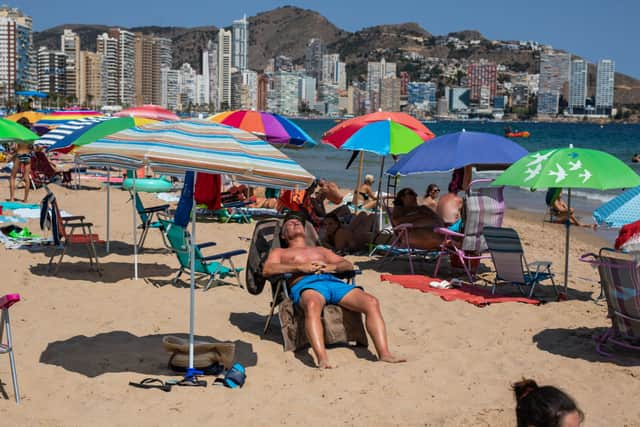Warning to UK holidaymakers over 3 extra documents needed to enter Spain
and live on Freeview channel 276
British tourists travelling to Spain are being warned they may be required to show extra documents to enter the country.
As well as a valid return or onward ticket, UK Foreign Office guidance states that three additional documents could be required at Spanish border control to be permitted entry.
Holidaymakers may be asked to show proof of:
- a return or onward ticket
- proof you have enough money for your stay
- proof of accommodation for your visit, such as a hotel booking confirmation, proof of address if visiting your own property (e.g. second home), or an invitation from your host or proof of their address if staying with a third party, friends or family. The Spanish government has clarified that the “carta de invitation” is one of the options available to prove that you have accommodation if staying with friends or family.


Advertisement
Hide AdAdvertisement
Hide AdThe UK Foreign Office also warns that British holidaymakers will need to have their passports stamped on entry and exit from Spain now that the UK is no longer part of the EU. As such, UK travellers are required to follow the Schengen visa-free travelling rules.
British nationals can visit Spain, and other Schengen countries, for a total of 90 days within a period of 180 days, but those planning a longer stay will need to apply for a visa. This applies if you travel as a tourist, to visit family or friends, to attend business meetings, cultural or sports events, or for short-term studies or training.
British Passports must have been issued less than 10 years before the date you enter the country, and must also be valid for at least three months after the day you plan to leave. If your passport was issued before 1 October 2018, extra months may have been added to its expiry date.
If you are travelling to Spain and other Schengen countries without a visa, you must make sure your whole visit is within the 90-day limit. Visits to Schengen countries within the previous 180 days before you travel count towards your 90 days.
Advertisement
Hide AdAdvertisement
Hide AdThose who wish to stay longer, either to work or study, for business travel or for other reasons, must meet the Spanish government’s entry requirements.
Holidaymakers are urged to check their passport has been stamped when entering or exiting the Schengen area through Spain as a visitor.
Border guards will check that visitors are complying with the 90-day visa-free limit for short stays in the Schengen area. If you do not have relevant entry or exit stamps in your passport, officials will assume you have overstayed.
You can show evidence of when and where you entered or exited the Schengen area and ask the border guards to add this date and location in your passport. Boarding passes and tickets can be used as acceptable forms of evidence.
Advertisement
Hide AdAdvertisement
Hide AdIf you are aged 18 or over, and airport staff instruct you to, you may be able to use e-gates where they are in operation. Anyone who uses an e-gate should ensure to get their passport stamped by a border officer.
Comment Guidelines
National World encourages reader discussion on our stories. User feedback, insights and back-and-forth exchanges add a rich layer of context to reporting. Please review our Community Guidelines before commenting.
